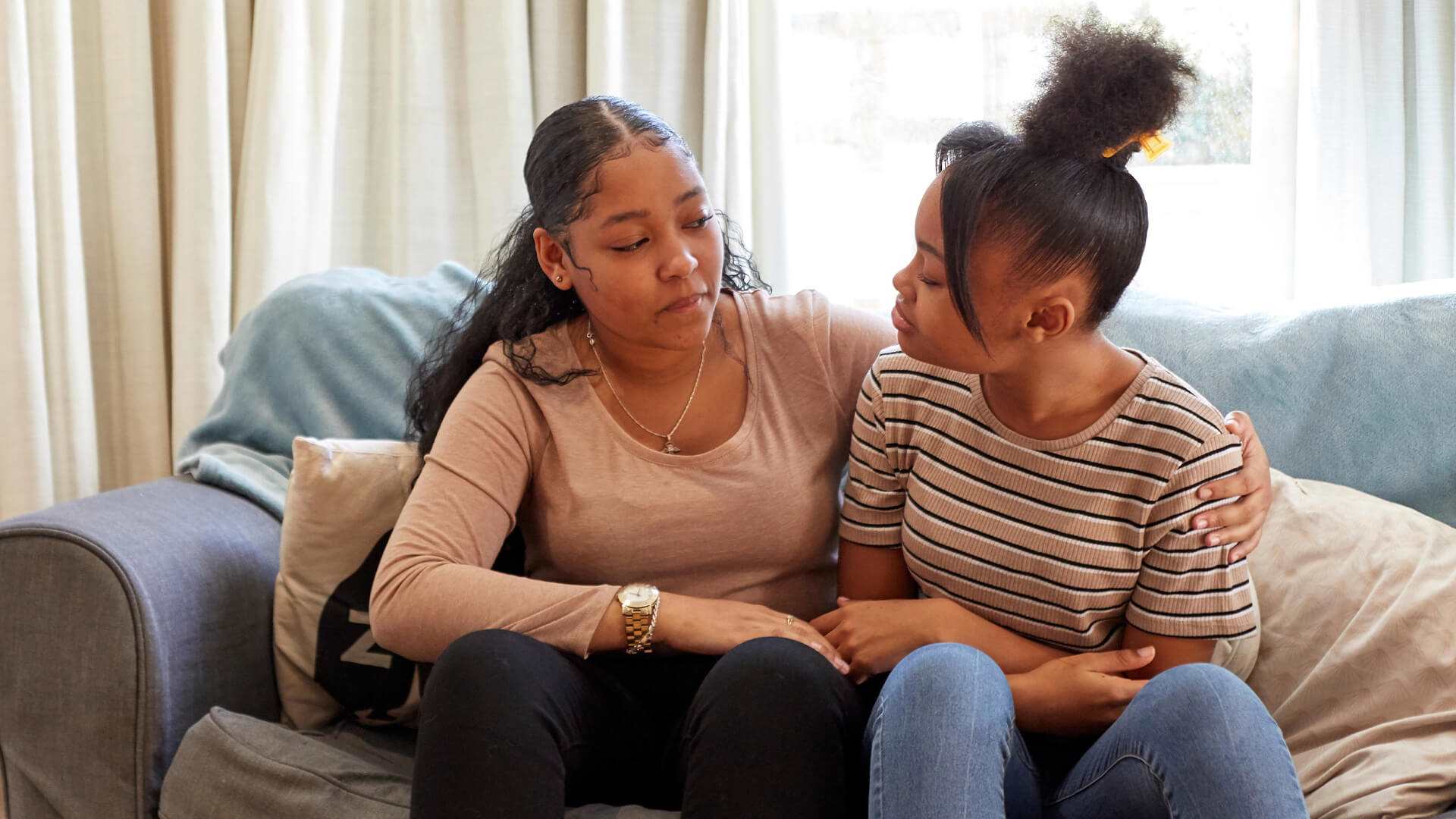What is depression?
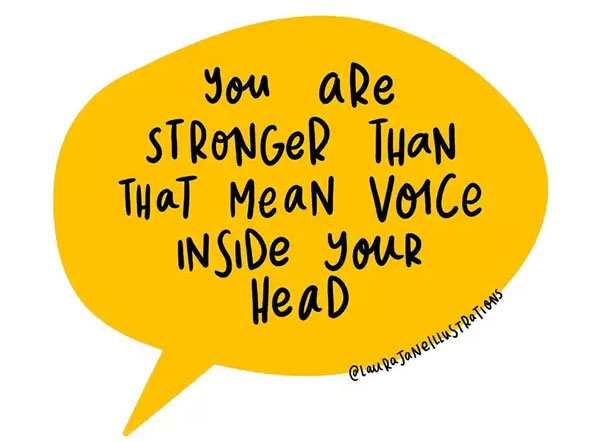
Artwork credit: @laurajaneillustrations. The artwork depicts a yellow speech bubble with the words: 'You are stronger than that mean voice inside your head'.
We all feel low or down at times, but if your negative emotions last a long time or feel very severe, you may have depression.
Depression is a mood disorder where you feel very down all the time.
Depression can happen as a reaction to something like abuse, bullying or family breakdown, but it can also run in families.
Depression often develops alongside anxiety.
It's not the same as manic depression, which is another term for bipolar disorder.
Depression is one of the most common types of mental illness. Although it's hard to feel optimistic when you're depressed, there is lots of support available to help you feel better.
The symptoms of depression
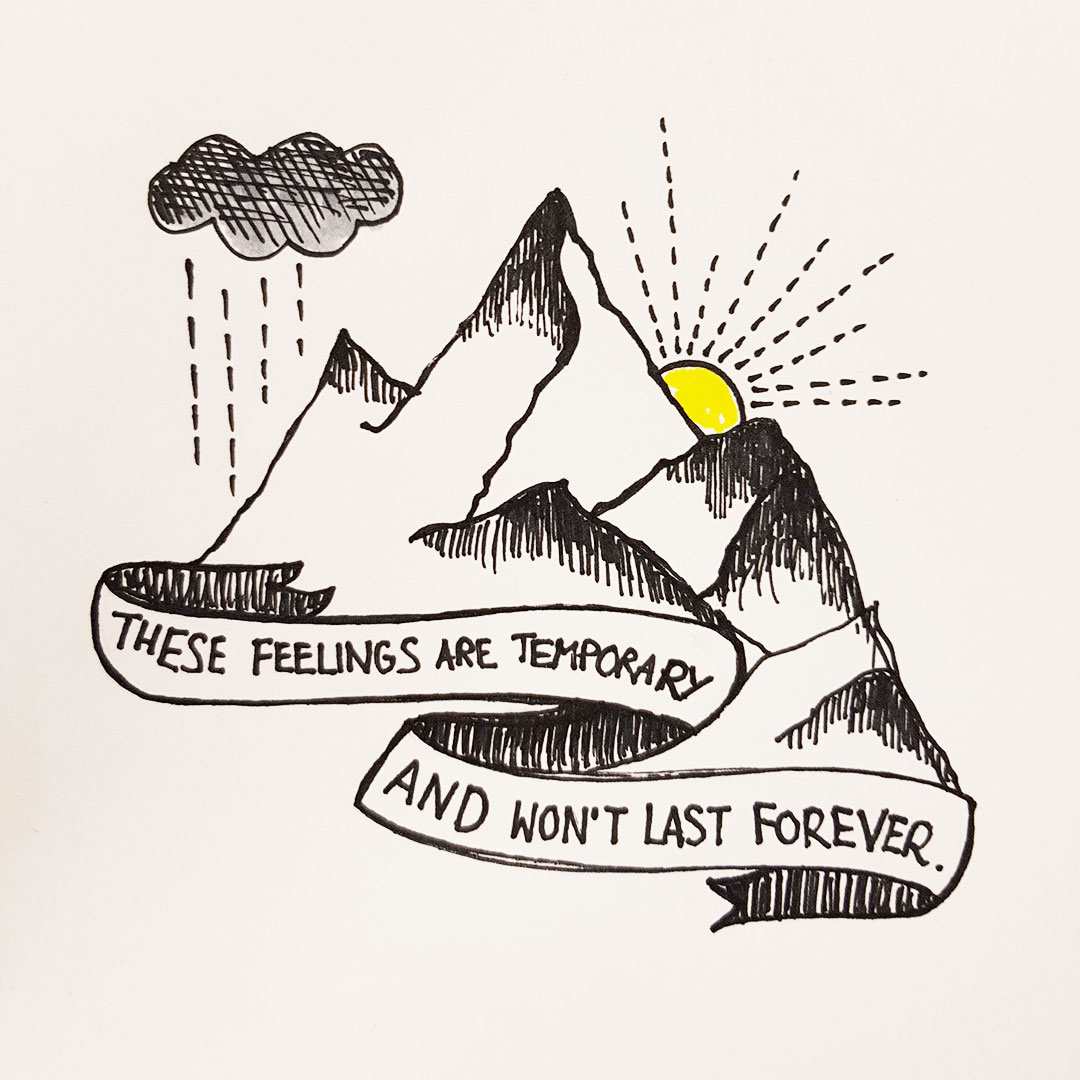
The artwork depicts hand-drawn, shaded mountains in black and white, to the left is a dark cloud with rain falling from it, behind the mountains is a yellow sun rising up from behind the mountains. In front of the mountains is a scroll that reads: 'these feelings are temporary and won't last forever.'
Depression affects different people in different ways. Symptoms can include:
- not wanting to do things that you previously enjoyed
- avoiding friends or social situations
- sleeping more or less than normal
- eating more or less than normal
- feeling irritable, upset, miserable or lonely
- being self-critical
- feeling hopeless
- maybe wanting to self-harm
- feeling tired and not having any energy
Just because you experience one or more of these symptoms, it doesn’t mean you’re definitely affected by depression. It’s important to talk to your GP to get a full diagnosis.
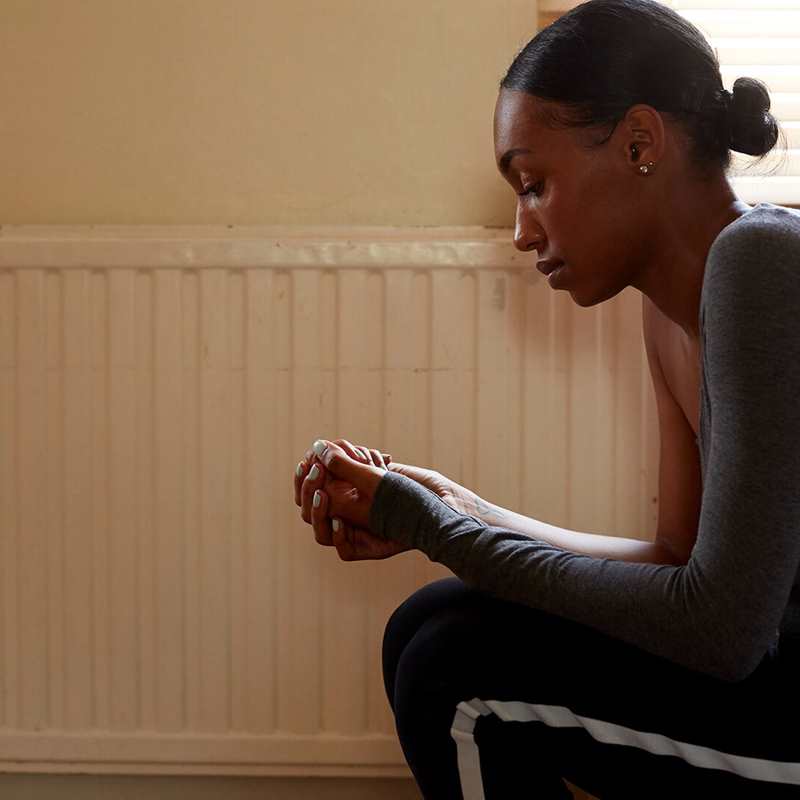
What is seasonal affective disorder (SAD)?
Seasonal Affective Disorder (SAD) is a type of depression that comes and goes in a seasonal pattern. Imogen, 20, shares her tips for coping with SAD on our blog.
"Although seasonal affective disorder is very common, it’s not something you hear talked about enough. It is similar to depression, except it comes and goes in a seasonal pattern, with the symptoms usually being mainly present during the winter. These symptoms include low mood, a lack of energy, a loss of pleasure in activities you would normally enjoy, and feelings of irritability.
"Just know that while it may feel like your feelings are never-ending and things will never get better, they will. Whether this is a new thing for you or you have been struggling for years, things will get better. You are not alone in this I promise you."
What to do about depression
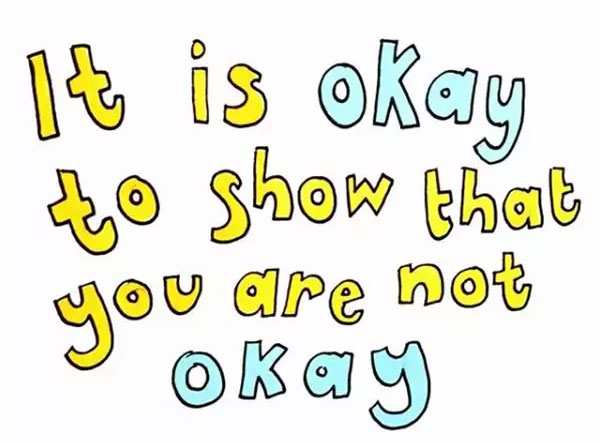
The artwork depicts wording in blue and yellow that is outlined in black pen. The words read: 'it is okay to show that you are not okay.'
Take the first step
Depression can affect anyone, and you deserve help to feel better. Talk to someone you like and trust, like a teacher, relative, counsellor or friend.
You should also see your GP. They may offer to refer you to Child and Adolescent Mental Health Services (CAMHS), an expert or a psychiatrist who can help you.
Treating depression
Depression can be treated with therapy, or a combination of both therapy and medication. Exercise can also help relieve symptoms.
The most likely therapy you will be offered is cognitive behavioural therapy (CBT) to help you manage your thoughts and feelings, although other types of talking therapy are available.
Realise that how your feeling won’t last forever and there’s always something to look forward to.
More information and support
Get help now
Where to get help
If you're feeling down right now, don't bottle it up and struggle alone. Help is available - here are some services that can support you.
-
Samaritans
Whatever you're going through, you can contact the Samaritans for support.
- Opening times:
- 24/7
-
Papyrus
Offers confidential advice and support for young people struggling with suicidal thoughts.
Its helpline service - HOPELINEUK - is available to anybody under the age of 35 experiencing suicidal thoughts, or anybody concerned that a young person could be thinking of suicide.
- Opening times:
- 9am – midnight, 365 days a year
-
CALM (Campaign Against Living Miserably)
Provides support to anyone in the UK who is feeling down and needs to talk or find information.
Free webchat service available.
Information about the helpline and how it works available here.
- Opening times:
- 5pm - midnight, 365 days a year
-
Childline
If you’re under 19 you can confidentially call, chat online or email about any problem big or small.
Sign up for a free Childline locker (real name or email address not needed) to use their free 1-2-1 counsellor chat and email support service.
Can provide a BSL interpreter if you are deaf or hearing-impaired.
Hosts online message boards where you can share your experiences, have fun and get support from other young people in similar situations.
- Opening times:
- 24/7
-
The Mix
Offers support to anyone under 25 about anything that’s troubling them.
Email support available via their online contact form.
Free 1-2-1 webchat service available.
Free short-term counselling service available.
- Opening times:
- 3pm - 12am, seven days a week

